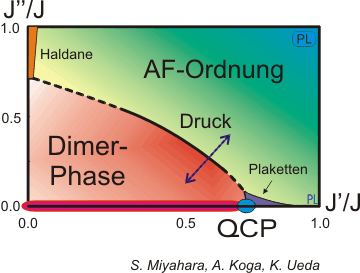Our projects and research is related to light - matter interaction and effects of electronic degeneracies in nanoscale systems and topological materials.
Applicaction relevant work is related to novel sensor applications and concepts of inovative information storage.
Within Quantum Frontiers we study topological effects in metrology and quantum metrology. Here, chiral systems and optical orbital angular momentum and spin angular momentum are in the center of our interest. Together with Andrey Surzhykov (PTB+TUBS) we organize Workshops and topical meetings.
![]()
Magnetism, electronic correlations and competing interactions
Interrelation of spin, orbit and topology
on small length scales
|
|
||
Magnetism and correlated electron systems
| magnetism & electronic correlations in systems with restricted or confined geometries | structural
principles of transition metal oxides:
|
some interesting transition metal oxides |
collective magnetic excitations and bound states |
spin defects and doping of quantum spin systems |
spin frustration and competing interactions |
stripe phases und orbital degrees of freedom |
quantum critical behavior |

Experimental Techniques:- optical spectroscopies and apertureless Raman scattering- preparation and search for NEW MATERIALS (Database mining)- ultrasonic spectroscopy
|
Earlier Seminars:- "Quantum Magnetism in Novel Materials and Geometries", (1999)- IGSM Lecture on Superconductivity- Magnetismus und Datenspeicherung (populärwiss. VL, "Physik am Samstag")- Habilitation colloquium "Sonolumineszenz - Aus Schall wird Licht" (1999)
- Übersicht zum DFG-Schwerpunkt
SPP 1073, "Kollektive Quantenzustände in
|
|
|
||
Webpages of Peter Lemmens
Diese Web-Seite stellt keine Meinungsäußerung der TU Braunschweig dar. p.lemmens at tu-bs.de, letzte Änderung: 24.04.2023 |
||